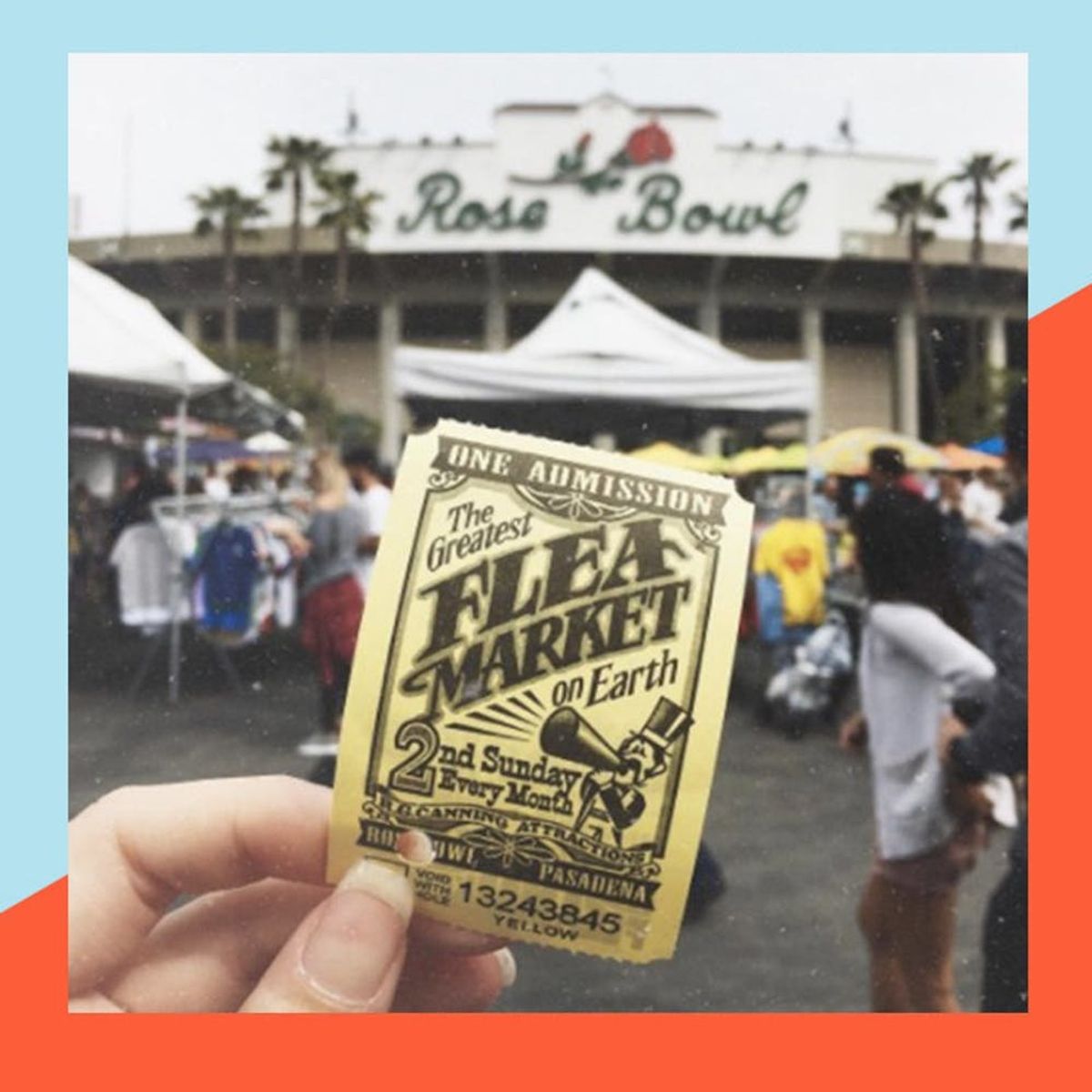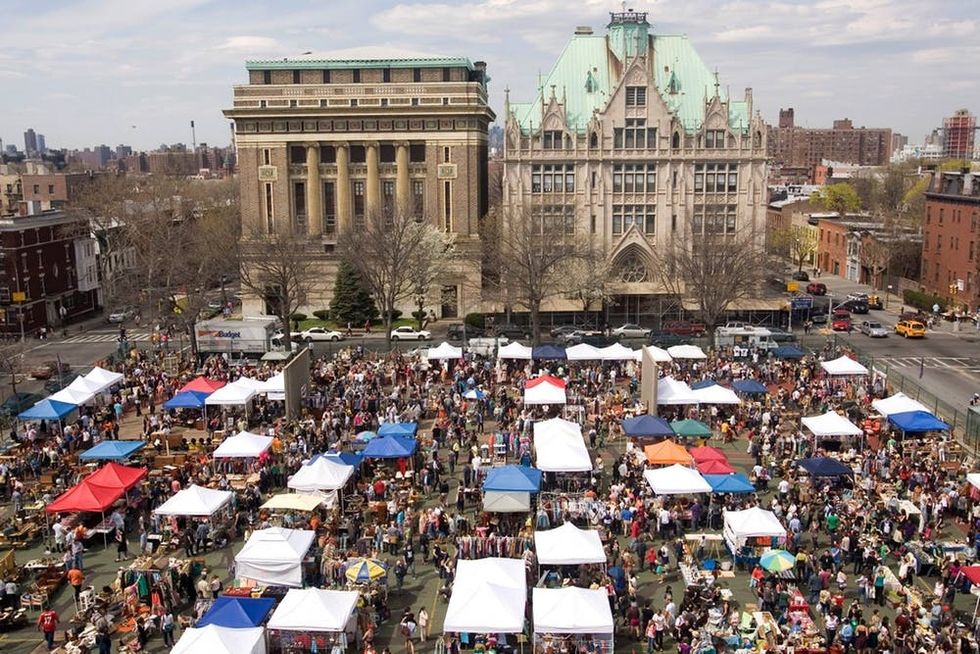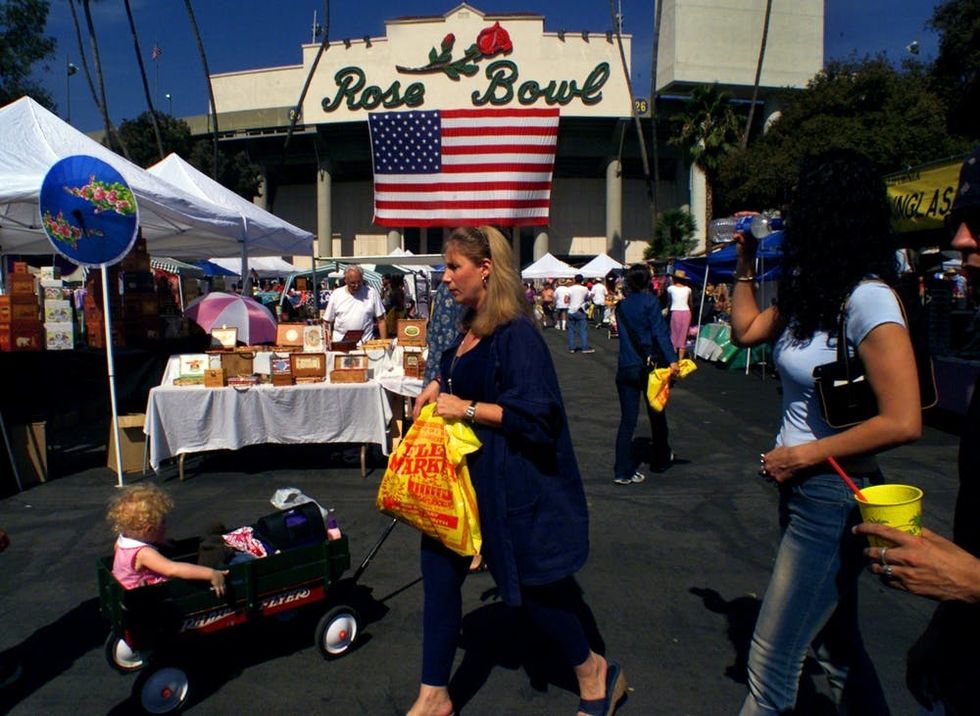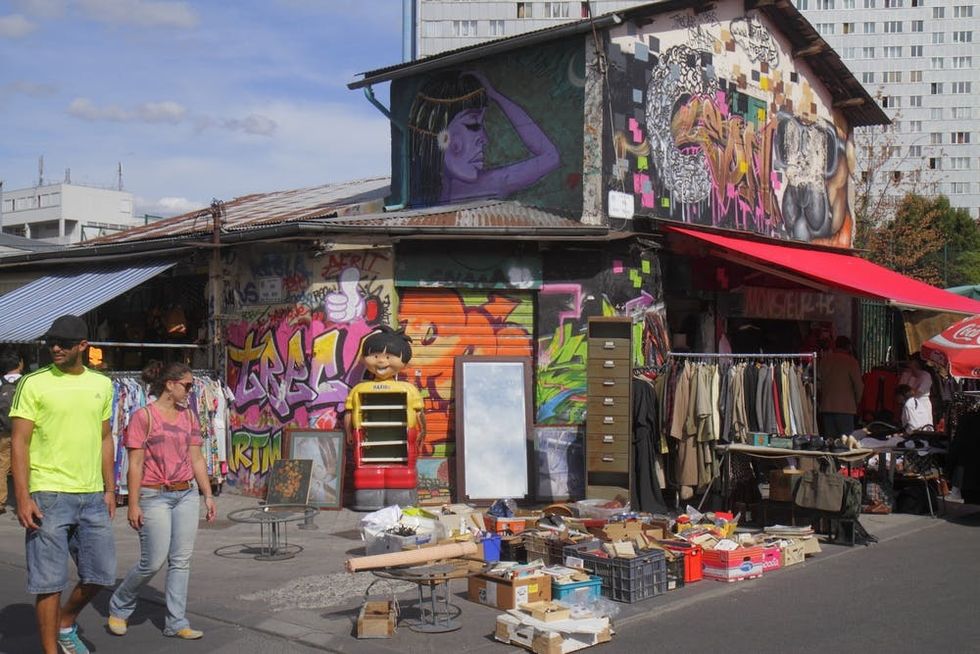An Expert Crash Course in Estate and Tag Sale Shopping

Ever find yourself wandering around a flea market (perusing someone else’s used goods) and start to question what’s a great investment and what’s just junk? Is that cute vintage coat I spied actually a) vintage b) in good condition and c) worth what they’re asking? Or, if you drop tons of dollars on an antique chair, will it fall apart once you get it home? There are so many questions — on top of the pressure to spot the best stuff and not get ripped off at the same time — so we turned to the pros for advice on what to look for, what to know before going in, and how much is too much to spend.
Timing is Everything

“When it comes to estate sales and flea markets, you can get the best buys first thing in the morning and right before the close of shopping,” says Jacquie Denny, Co-Founder of EVERYTHING BUT THE HOUSE (EBTH), an online estate sale marketplace. “Early a.m. risers tend to get a bunch of bargains because that’s the time to capitalize on items that the seller may not have as much market knowledge of as you, the savvy shopper. At the end of most estate sales and flea markets, it’s also customary for sellers to offer discounts on items they do not want to pack up again. The general rule is that the larger the item, the deeper the discount.”
What might some of those worthwhile larger items be, you might ask? “Items like architectural salvage, garden ornaments, or anything big and bulky are great finds,” adds Denny. “Late-in-the-day furniture bargains are also awesome!” (Photo via Brooklyn Flea)
What to Avoid

Denny’s #1 tip for novice shoppers is to avoid items that need authentication (like a Mickey Mantle signed baseball card, a Louis Vuitton turn-of-the-century steamer trunk, or jewelry that has marks indicating it is real gold or silver, but seems very heavy). “The rule is: If it seems to be too good to be true, it’s probably a fake or forgery,” she warns. “Fraudulent copies of luxury goods and sports memorabilia is a big business and the best customer is the novice looking for a diamond in the rough.”
To avoid overpaying for an item, cross-check it online to see what similar items are selling for. “This will also help you discover whether the item is rare or common,” advises Elsie Larson, Co-Founder of A Beautiful Mess.
Denny also suggests asking the seller questions like: Could you explain to me why this item is priced accordingly? Is there something special or rare about this example? “Sometimes the price of the item is determined by what the seller paid — not by what it normally sells market,” she adds.
Another way to protect yourself is to only shop in categories where you are very knowledgeable. “Cast all caution to the wind if the item is less than $10 — you won’t experience buyer’s remorse when the price is that low, but you definitely will at $100 if it doesn’t turn out to be the bargain you thought it was,” says Denny. “My best find was a painting by an obscure artist that I bought for $10 and sold for $5,000! This helped to pay off my son’s college expense.” (Photo via Getty)
A Few More Pro Tips

Always ask for a discount within reason if it’s a traditional estate sale or flea market. “Asking if someone will take $10 for a $50 item is unreasonable, but you’re likely to get a ‘yes’ if you’re asking for 10-20 percent off of the original asking price,” says Denny. As for how to handle a day of searching, she tells people to bring a wagon. “Flea markets can be spread out geographically and all those bargains can get heavy, so a wagon is key,” she says. “You can also take a partner in crime to shop with — it’s so much fun sharing best find stories at the end of the day with someone else.”
If you’d rather not lug items around all day, online estate sells come in handy. “There are plenty of steals you’ll be able to find, simply by sorting through the items that are ending soonest or the items with the lowest bids, rather than spending hours physically digging through everything at a flea market or at an in-person estate sale,” says Denny.
To keep from going down a rabbit hole search online, Larson likes to keep a list of terms handy. “I always search ‘Moroccan,’ ‘brass,’ and ‘wicker’ before anything else,” she says. Another great thing about online auctions is that if you’re on the fence about something, you can sleep on it. “If you don’t wake up the next day still thinking about it, it’s probably not that special,” she adds.
At the end of the day, the process should be fun and stress-free, however. As Larson points out, “It’s hard to tell if something is truly vintage sometimes, but to me, if I like it, I like it! I don’t worry as much about authenticity or rarity, as I do personal style and taste.” (Photo via Getty)
What’s your best flea market find? Tweet us @BritandCo!

















